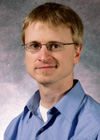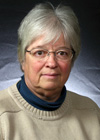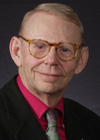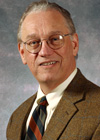A 'liberal arts' education is often difficult to define.
Wabash professors discussed underage drinking, the College’s Mission Statement, and the influx of younger faculty during a Tuesday night forum.
Wabash students and faculty came together to realize the epitome of what 'liberal arts' truly means. The event, entitled "Whither Wabash," was hosted by The Wabash Commentary, and brought together five professors at Salter Hall to discuss five questions.
The speakers were Visiting Professor of Religion William Cook, Professor of Mathematics and Computer Science JD Phillips, Professor of Political Science Melissa Butler, Professor of Classics David Kubiak, and BKT Assistant Professor of Mathematics Chad Westphal. Associate Professor of Religion David Blix gave opening remarks, and BKT Assistant Professor of Philosophy Mark Brouwer moderated.
Following Blix's introduction, Brouwer laid out the ground rules. There was to be "No wishy-washy-ness," he said. "You must listen to one another, and speak to one another. No grandstanding to the audience; save it for the classroom. Also, there will be no need to name names of others unless for complimentary purposes."
 The discussion's questions were written by The Commentary's Jacob Stump, and were created with the intention of sparking provocative conversation. Brouwer addressed the first of the evening's questions to Westphal, which was in regards to Wabash's four-pronged Mission Statement: Wabash College educates men to think critically, act responsibly, lead effectively, and live humanely."
The discussion's questions were written by The Commentary's Jacob Stump, and were created with the intention of sparking provocative conversation. Brouwer addressed the first of the evening's questions to Westphal, which was in regards to Wabash's four-pronged Mission Statement: Wabash College educates men to think critically, act responsibly, lead effectively, and live humanely."
The question was whether or not one prong or the other ought take precedence.
Westphal first took a humorous approach by referencing surveymonkey.com, but then launched into a more serious note. "For me, thinking critically really carries the day," he said. "And the others are in a three-way tie for second."
Brouwer asked the follow-up question about Wabash splitting up its resources for teaching students each of the four aspects of the mission statement. Westphal, however, believed the question asked about a problem which in fact did not exist. "It's a false dilemma to divvy up our resources," he said. "When we focus on teaching students to think critically, we automatically bring in the other three parts of the mission."
 Brouwer addressed his next question to Butler regarding the contrast in a life of action and a life of contemplation at Wabash. Cook, heretofore silent, quickly threw his hat into the ring following Butler's description of Aristotle's three kinds of lives.
Brouwer addressed his next question to Butler regarding the contrast in a life of action and a life of contemplation at Wabash. Cook, heretofore silent, quickly threw his hat into the ring following Butler's description of Aristotle's three kinds of lives.
"We sometimes think a false dichotomy is setup between action and contemplation," Cook said. "It seems to me that standing back allows us to gain perspective on what it is we're doing. We shouldn't be isolated, but detached."
Perhaps the lightning rod of the evening's questions, though, concerned underage drinking. Cook, who was directly asked the question, responded that Wabash's focus ought to be on self-regulation.
 "However many laws there are, there will always be underage drinking," he said. "The challenge is not how we are going to cork every bottle, the challenge is how we are going to regulate ourselves." Cook emphasized throughout that he was not in support of lowering the drinking age or underage drinking in general.
"However many laws there are, there will always be underage drinking," he said. "The challenge is not how we are going to cork every bottle, the challenge is how we are going to regulate ourselves." Cook emphasized throughout that he was not in support of lowering the drinking age or underage drinking in general.
Another of Wabash's urgent questions was the determination of what one thing, in light of the economic crisis, Wabash could never sacrifice and stay essentially Wabash. Phillips came up with two.
"This question is no longer theoretical," Phillips said. "There are two. First is money, because it is the one common reason amongst both students and faculty for coming to Wabash. If we throw less money to them, Wabash's quality will go down. The second is our liberal arts. We must keep the liberal arts."
The evening's final question was directed to Kubiak, and asked about the endangerment of the Wabash way because of the influx of so many new professors.
 "The question assumes there is such a thing as the 'Wabash way,'" he said. "If Caleb Mills were to return today, he'd be appalled. The question also assumes that faculty my age preserve the 'Wabash way.' I think that it's part of the 'Wabash way' to worry about losing the 'Wabash way.' But I think that there is a way, which is by inspiring men with a love of learning."
"The question assumes there is such a thing as the 'Wabash way,'" he said. "If Caleb Mills were to return today, he'd be appalled. The question also assumes that faculty my age preserve the 'Wabash way.' I think that it's part of the 'Wabash way' to worry about losing the 'Wabash way.' But I think that there is a way, which is by inspiring men with a love of learning."
When further prodded by Brouwer about the seeming focus of younger faculty on research over teaching, Kubiak responded that "you can't be what you should be to your students without being intellectually involved in your field. But you can't [be performing research] just to be looking to get ready for your next job."
Cook felt teaching at Wabash was different than teaching anywhere else, and Phillips agreed. "There needs to be a shift for what being an academician means when you go to Wabash," Cook said.
Seth Einterz '11 editor of The Wabash Commentary felt the event went well, and that it would lead to further discussion at Wabash. "It's good that we brought the community together," he said. "I think it really provided a jumping point for future conversations."